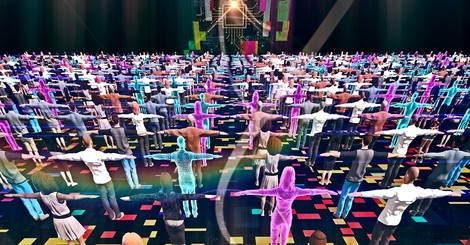Your podcast discovery platform
Curious minds select the most fascinating podcasts from around the world. Discover hand-piqd audio recommendations on your favorite topics.

piqer for: Globalization and politics Global finds Climate and Environment
Javier is a Berlin-based multimedia journalist. He completed a MA in International Journalism at City, University of London and is focused on humanitarian and conflict issues.
With experience in several countries, he's covered the refugee crisis, Turkey's coup attempt and the Kurdish conflict.
Among others, his work has been published at ABC News, Al Jazeera, Channel NewsAsia, RBB, IRIN News, El Confidencial, Público or Diario ABC.
Citizens Of The World, Protect Your Data!
There's no doubt about all the changes and challenges new technologies are bringing into our daily lives and, by extension, into our political and economic systems. As citizens, it's pretty much our duty to look at this phenomenon with a critical eye. And to do that we need guidance from academics, analysts and intellectuals.
Historian and philosopher Yuval Noah Harari is one of them. A very successful one.
He is the author of the global bestseller 'Sapiens' (over a million copies sold worldwide), in which he recounts the unlikely story of human evolution. The book was praised by some of the most influential individuals of our time (from Mark Zuckerberg to Barack Obama).
Now Harari looks into the present and near future in his latest book, '21 Lessons for the 21st Century'. At The Atlantic we can read an adaptation from one of the chapters, where he paints a grim picture.
Information technology is continuing to leap forward; biotechnology is beginning to provide a window into our inner lives—our emotions, thoughts, and choices. Together, infotech and biotech will create unprecedented upheavals in human society, eroding human agency and, possibly, subverting human desires. Under such conditions, liberal democracy and free-market economics might become obsolete.
Harari throws some very interesting ideas that put our minds to work, which is already good enough. The potential rise of an irrelevant social class, for example. "It is much harder to struggle against irrelevance than against exploitation," he writes.
However, across the whole text there's a constant fear mongering against modern technology—a very old way of thinking. There's nothing really new about dictators and autocrats using powerful means to spread their propaganda. But I guess that's what it takes for a book to become a bestseller.
The end is far easier. We need to adapt to the new times: remain well informed, keep practising critical thinking and, of course, protecting our data.
